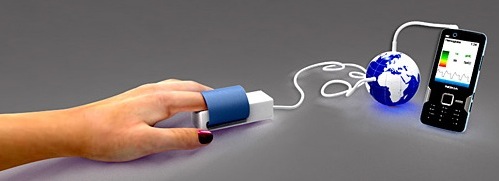Students Develop Device for Anemia Screening for Women in the Developing World
Posted on Aug 08, 2012 | Comments 0
Public health officials estimate that there are 100,000 maternal deaths and 600,000 newborn deaths resulting from anemia each year around the world.
Undergraduate researchers in the bioengineering department at Johns Hopkins University in Baltimore have developed a device that healthcare workers can use in the field to screen mothers for anemia. Women place their finger into the HemoGlobe device. The device shines wavelengths of light through the skin to measure the level of hemoglobin in the blood. The device is connected to a cellphone which relays the data to a computer server that produces an analysis to determine if the woman has anemia. Heathcare workers in the field can then make recommendations on diet or lifestyle changes or can refer patients with the most serious cases of anemia to hospitals.

The students say their devices can be manufactured for between $10 and $20. The students won a $250,000 challenge grant to develop the device from the U.S. Agency for International Development and the Bill and Melinda Gates Foundation.
Filed Under: Foreign • Grants • Women's Studies








